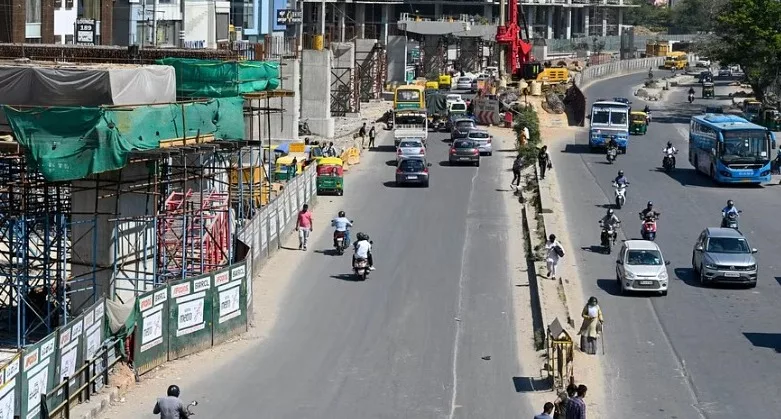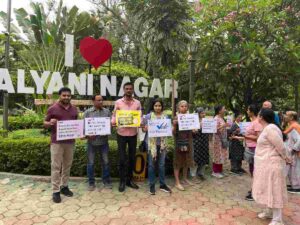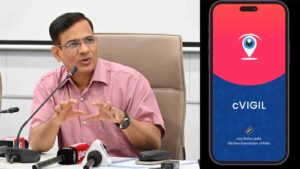Traffic may get worse in Bengaluru due to closure of flyover for metro work

Traffic may get worse in Bengaluru due to closure of flyover for metro work
Commuters in Bengaluru, the construction of the Namma Metro may lead to further aggravation of traffic problems in the upcoming months. The Bengaluru Metro Rail Corporation (BMRCL) has announced that one side of the Silk Board Junction flyover will be partially closed to facilitate the metro construction.
According to a statement from Namma Metro, a 2.5-meter section on both sides of the main carriageway of the flyover’s up and down ramp near Madiwala will be barricaded for a duration of four months. Namma Metro is currently the second largest metro network in the country, spanning a total length of 72.2 km. Additionally, there are ongoing construction activities for an additional 97.84 km.
The existing network consists of two lines, namely the Green and Purple lines. The Purple line covers a distance of 42.17 km and serves 37 stations, while the Green line spans 3 km and includes 29 stations. It is worth noting that the construction of the Yellow, Pink, and Blue lines is currently underway, which will further extend the metro network by 97.84 km.
Earlier this month, the Deputy Chief Minister of Karnataka, D K Shivakumar, announced plans for a 190 km long tunnel to alleviate traffic congestion in Bengaluru. Within 45 days, the state government will invite public tenders for the project. The companies awarded the project will conduct a thorough study and provide recommendations on the specifications of the tunnel road, including the number of lanes (four or six), the starting and ending points, and the possibility of expanding it throughout the city.
Additionally, the Deputy Chief Minister emphasized the need for collaboration between Bruhat Bengaluru Mahanagara Palike engineers and the traffic police to address the issue of potholes. He assured that immediate repairs will be carried out in important areas of the city during rainy seasons when potholes are more likely to occur.
Madhupriya Dhanwate









